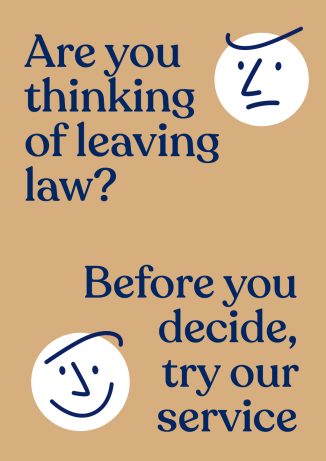Managing client relationships in the law can be incredibly challenging. Sometimes the legal work itself may not be particularly complex, but the challenges and stress that ensues as a result of a difficult client dynamic cultivates an environment of stress and overwhelm in its own right. Worse still, you might have the trifecta of troubled waters – your own ‘difficult’ client, the ‘other side’ who is also ‘difficult’, and a complex set of facts to navigate. Let’s not forget you also probably have a cohort of equally similar ‘difficult’ matters across your desk. It can all start to feel like a little too much. And perhaps invites you to question what you are doing wrong.
Ingredients: What makes a client ‘difficult’
The ‘difficult’ client can present itself in a variety of manifestations. Here are a few of the staple ingredients that can make a client ‘difficult’ by definition. You might find that the most challenging of your clients encapsulate a concoction of some, or even all, of the characteristics in this list.
- The one who isn’t all that keen on paying
This is the client who wants you to do the work yesterday, but doesn’t want to pay for it. They might not value or understand the legal skill, knowledge and time that goes into preparing that letter of advice, or how laborious it is to turn pages and pages of instructions into a succinct and well-structured affidavit. They don’t want to put funds into your firm’s trust account no matter how many times they’re asked. In theory, your firm’s “tools down” policy seems straightforward where there are no funds on account. But, the partner calls the client and they end up making a deposit. What this means for you though is the looming dread of urgently drafting court material tonight and finding a barrister to appear at short notice.
- The one who questions your advice
You’re the lawyer, with knowledge, skills and expertise in your chosen field. But, this particular client doesn’t seem to take much notice of that. They perhaps don’t like the advice you’ve given them and decide you must be wrong. Or their friend’s cousin twice removed who is not a lawyer gave them advice contrary to yours. Or they’ve done their own research and read X, Y or Z.
- The one who plays the blame game
This client may have difficulties regulating their own emotions, and they are quick to throw the blame in your direction. The client may have well created the predicament, and you’ve done your utmost to present the case in the best possible light, but it’s somehow still your fault.
- The one who isn’t great at giving instructions
This encompasses the non-committal client who attempts to evade the responsibility of giving instructions altogether, the client who gives you their instructions at the eleventh hour meaning you’re left to rush the work the night before a deadline, and the client who sends copies of three years’ worth of bank statements to you in individual screenshots across multiple emails. Yikes!
- The one who is over involved
The over involved client struggles to let go of control and wants to micromanage the running of their case. They may send you a barrage of documents, which you meticulously sift through and finding nothing of any assistance. It’s simply a time waster. And it can undermine your competency. Who’s acting for who here?
- The one who is rude to non-legal staff
This client is nice as pie to you and anyone else with the title ‘lawyer’, but is dismissive and unappreciated to reception and other support staff.
- The one who always needs to talk to you
This is the client who thinks they are the only client you have, or if you do in fact have more clients, they just mustbe the most important. They don’t accept when you are in a conference and can’t take their call, or you don’t respond immediately to their email marked urgent (which, of course, isn’t actually urgent). What they want to talk to you about is not always strictly under the umbrella of legal advice, either.
So, you are certain you have some ‘difficult’ clients. I suppose you’re now thinking – is there actually anything I can do about it?
The reality is that demanding clients exist, and will continue to exist. Legal matters, particularly those that involve litigation and require judicial determinations, can be lengthy and protracted. Your interactions with a demanding client may be anything but fleeting. The answer isn’t to leave the law. While at the extreme end of the scale, ceasing to act for a particular client may well be the only appropriate course of action, it’s not feasible to end every client relationship that proves trying. Nor is it most often necessary. There are myriad of ways to appropriately prepare, respond and effectively manage a ‘difficult’ client.
Method: Managing a ‘difficult’ client
Each individual lawyer’s approach may differ in nuance and style, however, there are some broad principles to consider when looking at ways to manage the ‘difficult’ clients amongst your case load.
Identify the red flags early
Clients are not usually showing up to the first conference with a lawyer beaming with happiness and soaring spirits. They might be highly anxious, stressed, worried or angry. Their lack of personal wellbeing might be situational to the legal issues they are facing at that particular moment, or, they may have a history of personal challenges that are exacerbated by the current situation. There are usually some tell tale signs that someone may add that extra level of challenge, particularly if you are on the lookout for them from the get go.
Are you a client’s second or third lawyer for the same matter? Find out why it didn’t it work out with their previous lawyer or lawyers? Does the client show signs of dysfunction in their interpersonal relationships or their employment? What is their communication style like with you? What about with your support staff? What kind of information have they provided to you before the initial appointment? How long does the initial phone call or appointment go for? What kind of questions are they asking about fees? Are they able to provide clear and cogent instructions and answer your clarifying questions? Are they defensive, argumentative, sarcastic, dismissive, aloof or abrasive in conference? Or respectful, attentive, and asking appropriate solution-focused questions?
Really know the type of client you are taking on. Ask specific questions about your client’s expectations. And make sure to communicate clearly about your own expectations for the lawyer-client relationship. This can feel daunting in the moment – but there really does need to be some alignment and understanding of your respective values to create an efficacious working relationship.
Draw the line
Simply ignoring a client or not getting back to them is NOT the same as boundary setting. Boundary setting is an action, not a reaction.
Setting and maintaining boundaries can be really uncomfortable, both in work and non-work. The fear of how someone may respond to a boundary can be part of the reason people shy away from them. But, without clear boundaries, the management of challenging clients will become even more challenging. And can be disastrous for your own wellbeing.
Consistency is really crucial here. From you of course, but also anyone else in your team who will be interacting with a particular client. Answering an email or returning a phone call after hours sets a precedent that you work after hours – be really mindful of this. Let a client know you have X number of minutes for the call before the call, and stick to that time frame. Don’t feel like you have to say yes immediately – take some time to think about a client’s request.
Beyond the books
Don’t fret if these kinds of soft(er) skills don’t come innately to you. They weren’t taught at law school. Guidance on exactly how to communicate politely, professionally and with integrity is a skill that often needs to be developed and honed over time. If ‘boundaries’ are new to your vocabulary – practice, more practice, and even more practice. You might find that seeking professional support and guidance around boundary setting is a fruitful endeavour, especially if you notice you find it particularly unpleasant. And it’s a skill you can utilise to improve your non-work life, too.
To Serve
Creating client relationships of rapport, trust, respect, kindness, effective communication and compassion are not just a pipe dream. They are possible. But, these kinds of client relationships do require principles like reciprocity and mutuality. Clients come to us in various degrees of emotional states – they are arguably just doing the best they can, with the skills they have, in the context of the challenging life events they’re experiencing. Insight, awareness, emotional intelligence and the capacity to identify one’s own flaws are not life lessons that can be learned easily. Plus, you’re a lawyer, not a psychologist! You can’t demonstratively change a client’s behaviour. But, what you can do is expand your own skillsets to identify troublesome behaviours. And start proactively managing, and not simply reacting, to the challenges inevitably posed by your clients.




